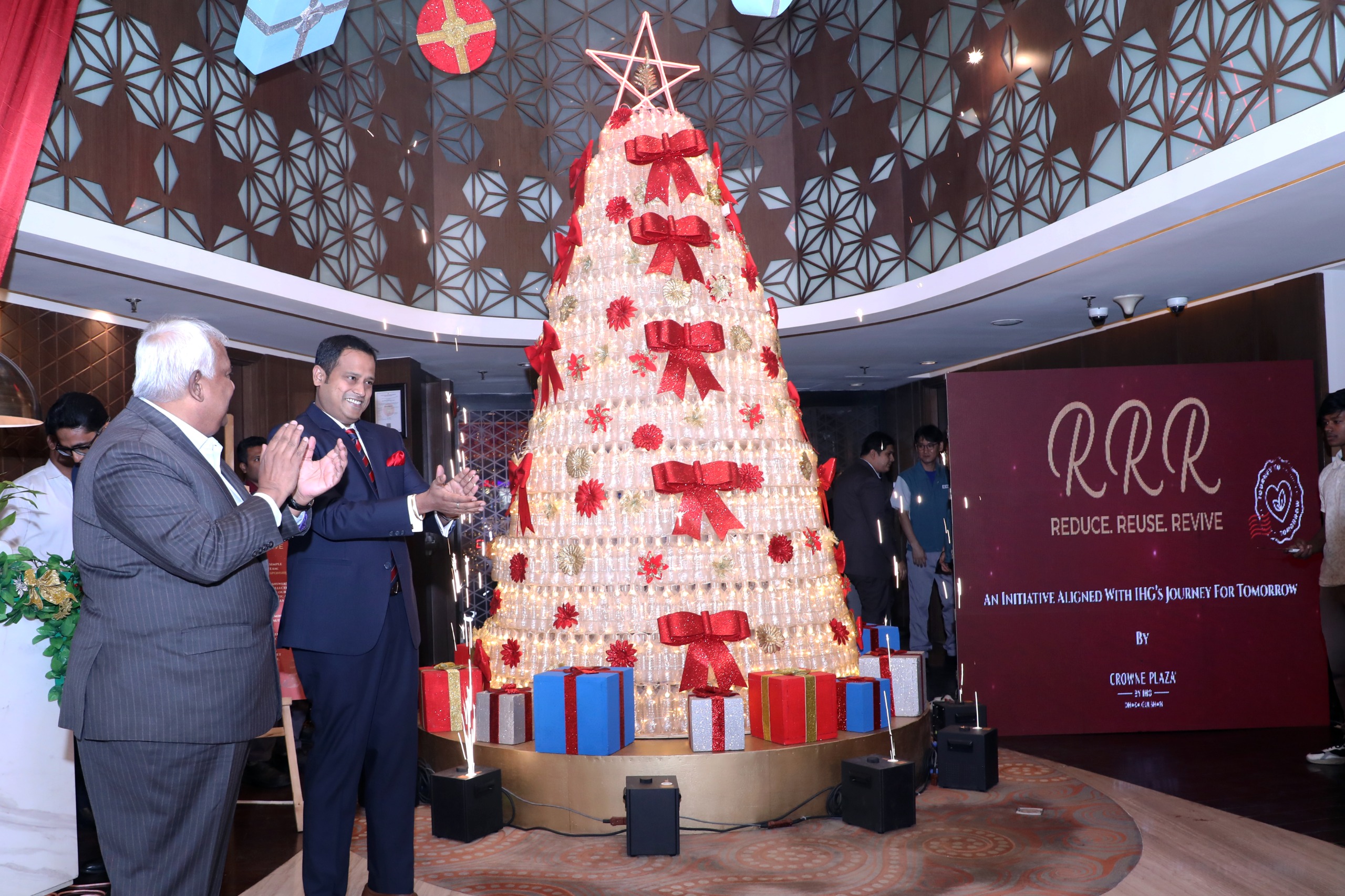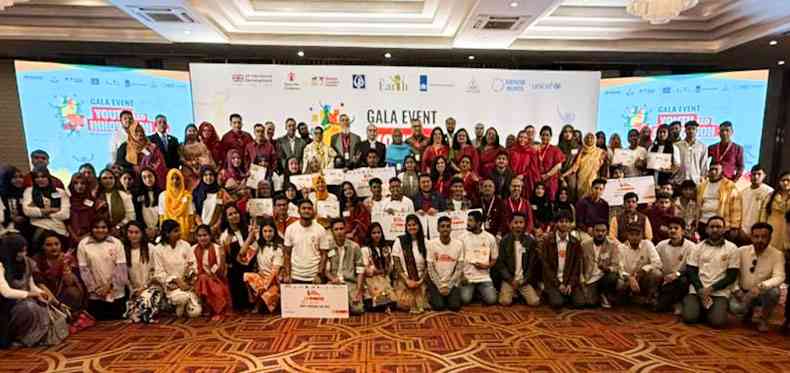Exploring the impediments to realising the full potential of the blue economy of Bangladesh.

The marine world is vast. Our oceans make up 97% of the world’s water resources making the planet appear blue from outer space. Water bodies provide 50% of the oxygen we need to survive on earth and contain 80% of all life forms. They provide food for nearly half the world’s inhabitants and are important for the mental and physical health of humans. The concept of the blue economy has gained momentum in recent years as people recognise the potential of the ocean as a source of wealth, food, energy, and innovation. Used sustainably, it has the potential to transform the way we think about economic development and environmental stewardship.
One of the primary advantages of the blue economy, especially for riverine countries like Bangladesh, is that it can create new economic opportunities in coastal and island communities.
A term introduced by the Belgian economist, Professor Gunter Pauli in 1994, the blue economy is defined as the sustainable use of ocean resources for economic growth, improved livelihood and jobs, and ecosystems, and engagement in activities such as renewable energy, fisheries, maritime transport, tourism, climate change and waste management. Aimed at empowering the ocean economy through the use of ocean-based resources, the blue economy is a futuristic strategy that scientists are looking towards, as a way to improve human well-being, social equity and the preservation of the environment, particularly at a time when the resources above ground seem to be dwindling. Due to its potential and promises for the future, the blue economy has been hailed by experts as a sustainable marine economic development model.
Prompting collective action, the blue economy is the 14th Sustainable Economic Goal out of the 17 goal-list produced by the UN. Governments that have picked this goal, such as Bangladesh, are now working at prioritising the sustainable use of oceans, seas and marine resources in their countries.
One of the primary advantages of the blue economy, especially for riverine countries like Bangladesh, is that it can create new economic opportunities in coastal and island communities. These areas often have limited economic options, which can lead to poverty, unemployment, and emigration. By harnessing the resources of the ocean, these communities can develop new industries, such as aquaculture, tourism, and renewable energy. These industries can then provide stable jobs and income for local residents, while also generating revenue for governments and businesses.
In addition to economic benefits, the blue economy can also improve food security and nutrition, especially as issues such as degradation and infertility plague the land. Seafood is an important source of protein and nutrition for billions of people around the world, including Bangladesh. Amid concerns of overfishing and fish depletion, which can lead to food shortages and price increases, aquaculture, the farming of fish and other aquatic organisms, can help to provide a sustainable source of seafood. Furthermore, the blue economy can also support sustainable fishing practices, such as the use of selective fishing gear and fishing quotas, to ensure that fish stocks are maintained for future generations.
The blue economy also does its part to generate renewable energy. The ocean has massive potential as a source of clean energy, with technologies such as tidal power, wave energy, and offshore wind turbines. These technologies can provide a dependable source of electricity to coastal communities, reducing their reliance on fossil fuels and contributing to the fight against climate change.
The blue economy offers the potential for innovation and technological development. The ocean is a largely unexplored environment, and there is still much to learn about its ecosystems, species, and resources. Research and development in areas such as marine biotechnology, ocean robotics, and oceanography can lead to new products, services, and technologies that can collectively benefit society and bring about positive change.
In addition to economic benefits, the blue economy can also improve food security and nutrition, especially as issues such as degradation and infertility plague the land. Seafood is an important source of protein and nutrition for billions of people around the world, including Bangladesh.
Right now, the ocean economy churns out between USD 3 and 6 trillion a year, with the contribution from fisheries and aquaculture alone making up USD 100 billion annually. While this number is on the increase, perplexingly, progress in the sector has been slow. For a country like Bangladesh which has been blessed with 710 kilometres of shoreline and 200 nautical miles of resourceful Exclusive Economic Zone (EEZ) in the Bay of Bengal, milking the benefits of the blue economy would really help further their sustainable economic development goals. However, much like the rest of the world, Bangladesh had not given the sector much thought before the adjustment of the maritime boundary demarcation debate with Myanmar and India between 2012 and 2014, respectively.
Our country benefits significantly from sea-based resources; fish production claims the top position among them. More than 50% of all animal-based protein in Bangladesh comes from fish and other edible sea animals. About 19.4% of all fish production in the country comes from marine fisheries and the government has also turned its focus towards sea-based tourism. It has taken a number of initiatives towards the sustainable exploitation of marine life, including arranging workshops and consultations, and including twelve action points in its seventh five-year plan for sectors such as fisheries, renewable energy, human resources, trans-shipment, tourism and climate change. Additionally, the ‘Blue Economy Cell’ under the Ministry of Foreign Affairs has also been established to implement marine economy plans at a priority level.
Despite the stellar initiatives taken by the government, experts opine that Bangladesh is nowhere near unlocking the full potential of the blue economy. While some of the initiatives are bearing fruit, there are a number of different factors holding us back. One of these is traditional inertia. There are a number of people who prefer the old ways of doing things. As the marine economy is dynamic, old methods greatly slow down the potential of the ocean-based economy.
More than 50% of all animal-based protein in Bangladesh comes from fish and other edible sea animals. About 19.4% of all fish production in the country comes from marine fisheries and the government has also turned its focus towards sea-based tourism.
Water pollution is another big factor holding back the country from realising the full potential of its aquatic resources. Man-made pollution that shows no signs of abating, expressly from the garments industries in the form of toxic dyes and other chemicals, harms the fish and the habitat in which they live. There is further pollution in the form of pesticides and chemical fertilisers that run into water bodies from agricultural land, and an almost unchecked bulk of plastics, microplastics and other hard waste materials that clog the seas due to tourism and household activities. Ports allow ships to clean out their tanks and throw toxic waste into the sea. Oil spills and underwater noise caused by sea vehicles, especially in the Chittagong port, and deep anchors that cut through coral and other sensitive marine ecosystems, all overburden the ocean, decreasing their sustainability. Fish and other sea animals get tangled in this rubbish or eat other small fish full of chemicals. This shrinks their lifespan and greatly diminishes their ability to reproduce, curtailing chances of fish culture and cultivation.
There is another, largely unknown phenomenon, that may be holding Bangladesh back in this sector. The ocean is closely linked to the climate as they are the main carbon sink for the earth. This means that they absorb and store man-made carbon dioxide. While this process is a major positive for air pollution, it has major disadvantages when it comes to water bodies. Excess carbon dioxide absorbed into the water triggers acidification, damaging bio-networks such as the coral reefs found in St. Martins.
Whatever remains of healthy marine life is taken away due to overfishing and harmful cultivation practices like increasing water salinisation. Shrimp production, which was once introduced as an adaptation method for regions facing the consequences of naturally increasing water salinity, has now been exploited beyond measure. As Bangladesh claims the global centre stage in the export of shrimp, many have invested heavily in non-green activities such as artificially increasing river salinity to encourage shrimp production. While this maintains the robust culture of shrimp and keeps the exporters nicely compensated, it harms the sweet water fish that cannot survive the salinity of the water. The fishing of pregnant fish – especially Hilsha – for the consumption of eggs as a culinary delicacy, and the lack of cleanliness and sustainable production practices in fisheries make matters worse.
From shipping to fishing, aquaculture and algae production, shipyards and ports, tourism, research and development and education, the ocean has the potential to do much for the economy.
The economic benefits of the blue economy in Bangladesh are immense. From shipping to fishing, aquaculture and algae production, shipyards and ports, tourism, research and development and education, the ocean has the potential to do much for the economy. As a solution to the limitations of the existing Blue Economy Cell of Bangladesh, experts have suggested the formation of a separate ministry to ensure sustainable practices of the blue economy. As the industry is still heavily reliant on research and development, many universities and institutions are prioritising marine-based studies in the country. More can be done to encourage researchers to dive into the mysteries of the blue and pull up the economy to its optimum potential if governments can ensure adequate R&D funding in this sector.















